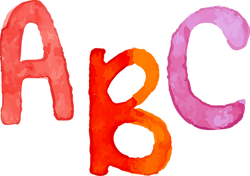
Debbie's E-portfolio
Reflection on using ChatGPT for academic writing

The article by Tai et al. (2023) provides clear strength and weakness on the usage of ChatGPT, particularly in academic contexts. Before reading the paper, I usually use ChatGPT as a tool for helping me correct grammatical errors, organize ideas and ask for guidelines when completing academic writing. In other words, I see ChatGPT as a writing assistant and a useful aid in writing. After reading the paper, the article has expanded my understanding of how AI can support academic writing. For instance, linguistic injustice is mentioned in the paper. Linguistic injustice is a concept that occurs when individuals or groups face unfair disadvantages due to language barriers, dialect differences, or prejudice. This concept is particularly used in academic context. For people whose native language is not English, language barrier is an issue for them. In this sense, ChatGPT can serve as a useful tool for these groups of people for modifying their words to become more professional. At the same time, the scholars can focus on the quality of their research instead of struggling with the language barriers. Therefore, ChatGPT indeed helps students and scholars improving academic writing in terms of its structure, clarity and organization.
However, ChatGPT does have its weaknesses. While ChatGPT helps us to brainstorm and organize ideas, it could rot our brain at the same time. Since AI often provides perfect drafts or results more than we expect, most people tend to take it without modifying or paraphrasing it. Students sometimes would take it directly as well. By doing so, ChatGPT will make students become stupid and even lead to a lack of critical thinking. Moreover, for students who use ChatGPT's responses, even if they properly cite the sources, can this citation be considered a valid reference? The question cannot be answered at the moment. Besides, students who take the words directly can also be seen as plagiarism, which thus raises ethical issues. In addition, when we ask ChatGPT to provide references for particular papers, it sometimes provides invalid link, which ends up being unable to find that paper. In other words, when we use ChatGPT for academic writing or research, we should really keep an eye on the information AI provide. We cannot fully trust it even if it is indeed a helpful tool. As a result, the usage of ChatGPT in academic writing can be seen as a double-edged sword.
To sum up, my perspective on AI-assisted writing is that I will still use it as my writing assistant and ask it for help when needed, while at the same time, I will also check the results ChatGPT provide and won’t trust it completely. I now recognize that ChatGPT is a convenience tool in academic communication but I will keep in mind that I should not over rely on AI as it won’t help me in the long term. I believe by using ChatGPT properly, wisely and bear in mind with ethical considerations, AI can definitely boost my academic work in all aspects.

